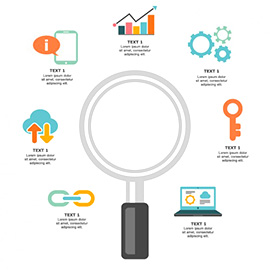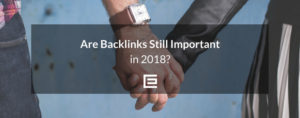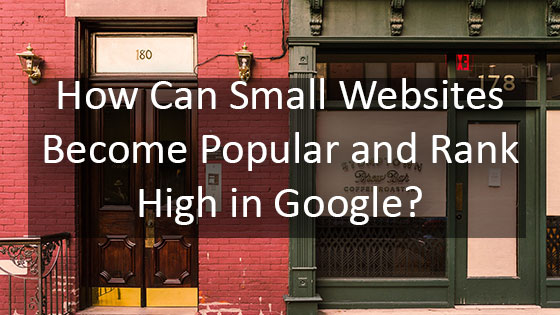When you want more people to find your website through search engines like Google, many experts or articles will suggest getting backlinks as a strategy. We’re going to explain what a backlink is and how they can help out your website.
What are Backlinks on a Website
The simplest definition for a backlink is: a website that points to your website. You can think of them as interactions between websites.
The other website pointing to your site can be a multitude of things: a local directory, your social media pages, websites you are a member of, a blog, another company’s website, and many more.
Here’s a few examples of places that your website may already have a backlink from:
- Your company’s Facebook, Twitter, or Instagram account
- Reviews for your business on Yelp
- Your business listing on Google
- The Houston Metropolitan, West, Northwest, etc. Chamber website
- Your business address on Google Maps, Apple Maps, Bing Maps, Mapquest
- Details about your company on Yellow Pages
- Articles written about your business in the Houston Chronicle
- Houston Business Journal’s Book of Lists
- Greater Houston and South Texas Better Business Bureau
How Do Backlinks Help a Website
Search engines like Google use a number of factors to determine which websites to show in their list when you search for a term. One of the factors that they look at is the number of links pointing to that website.
More respect and value is given to websites who are linked to from other website with a similar topic.
A delicious example: If you were looking for a new barbecue sauce recipe, which recipe would you trust more? One from a chef who works at a local restaurant and has been featured on ABC13, talked about in the Houston Chronicle, and been a James Beard Award winner? Or one from a home cook? When Google decides which recipe to serve to you, it will see that from the references listed in this example alone the restaurant chef has at least four mentions on websites, and there may be only one for the home cook. So it will deliver to you the one it feels is most relevant, which would be from the restaurant
Can you Buy Backlinks?
Some people will imply that from the details above the answer to a higher ranking on search engines would be to get thousands of links back to your website. And there are companies out there who specialize in selling these services to you, where you pay a flat fee and they build dozen, hundreds, or thousands of links to your site.
But bear in mind, backlinks is just ONE ranking factor that Google and the other search engines consider. They also look at usability of the site, amount of relevant content, site speed, page load time, broken links, mobile friendly design, and much more. (to learn more about these factors, read our blog about the Basics of On-Page SEO).
And Google is very, very smart. They can recognize that an excessive amount of backlinks to a site can be a sign of spammy practices. Especially if the links are coming from sites not at all related to your company (example: a pest control website sending a lot of links to a dental practice website). Google would also find it suspicious if a website that was purchased a few months ago already had 2,000 links to it.
Google can penalize your website if it detects bad SEO practices. The penalties can range from lowering your rank in the search results all the way to de-listing your website for their search engine altogether.
Backlink Best Practices
So if you can’t just buy a whole batch of backlinks, what’s the best way to get some for your website?
As we discuss on our blog “Link Building for the Long Term”, you need to take a long-term approach to getting additional links on your website. You want backlinks coming into your site naturally, without you having to make effort for each and every one.
Writing Great Content
Writing great, relevant, and interesting content that is targeted to your industry or customers is one way that you can encourage others to link to your site. If you write content that educational, entertaining, or can help a reader in some way, they may be willing to share your content with others. When they share that content online and reference your URL, it will create a link to your site.
Note that some links, such as your article being posted on Facebook, may not have as much weight to Google as others do, so in general it’s better to have a link from another traditional website versus being posted about on a social media account.
Name, Address, Phone Listings
Gone are the days when we use the yellow pages for finding a business’s address or phone number. Having your business listed on just one or two internet directories has gone by the wayside as well.
Name, Address, Phone (which we shorten to NAP in the biz) listings are a great way to give you backlinks, and make it easier for users to find you as well.
A recent report by the search engine authority Moz showed that the three things search engines look for when it comes it NAP listings:
- Quantity: the amount of NAP listings you have that list your business
- Quality: the amount of NAP listings that are relevant to your company. Directories like Yahoo, Yellow Pages, Yelp, Google Places, Citysearch, Merchant Circle, SuperPages, Manta are trusted nationwide business directories. There are local business directories you can be on related to the city you’re in. There are national directories related to business niches as well – just remember that if you’re a dentist and are listed in a lawyer directory, that will hurt, not help, your ranking
- Consistency: This means that your business name, address, and phone number are consistent through the world wide web. If your legal company name is Houston’s Best Barbecue, LLC, but you go by Houston Best BBQ, you need to be consistent with which name you publish in your listings. If your listings are a mix of Houston’s Best Barbecue, Houston’s Best BBQ LLC, and Houston’s Best BBQ, that would be considered inconsistent, and not be as beneficial to your search rankings. If your business is on the corner of Kirby Drive and Holmes Road, you need to be consistent if you list it as “10031 Kirby Drive” or “Kirby Drive at Holmes Road” on the internet.
Removing Bad Backlinks
It happens to the best of us. You had an overzealous intern who read a blog once that advised them to get all the backlinks possible. Now your site has directories pointing to it that haven’t been updated since 2006, links from a restaurant website that’s in Minneapolis that you’ve never heard of, links from a website that’s just a bunch of other links (a popular strategy for those backlink building companies), or links on a website with a lot of adult content (yes, that happens more often than you’d think).
It’s best to do this manually, or have your digital marketing agency do this for you. Just like backlink builders, there’s a number of tools out there that claim to detect and remove your bad backlinks automatically. But they may end up removing links that are good for your site, and often overcharge you for the work.
First you need to start by looking up the backlinks that you currently have on your website, and assess which ones are not on target for your company, inappropriate, or very outdate. Then you can visit that website and see if it’s listed in their FAQ how to get removed from the site, or look for an email address for them to request your removal. In some cases, you may have to call the company hosting the site to request to be removed.
Overwhelmed? We can Help
The SEO experts at Houston Web Design Agency know why backlinks are important, the correct type to get, and how to identify and remove bad backlinks from a site. We can also assist you in writing targeted, shareable content for your website, creating ads, and much more. Call us at 281-764-9070 or click here to schedule a consultation to see how we can assist with your digital marketing needs.








